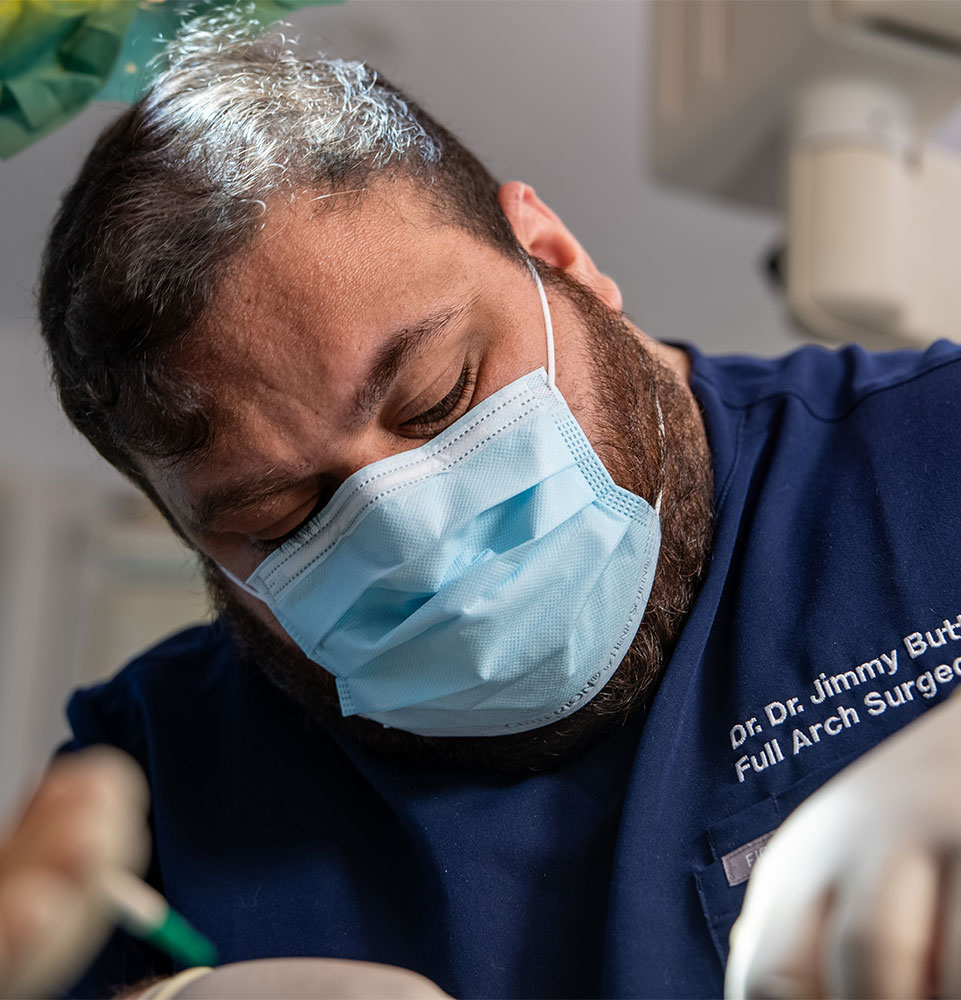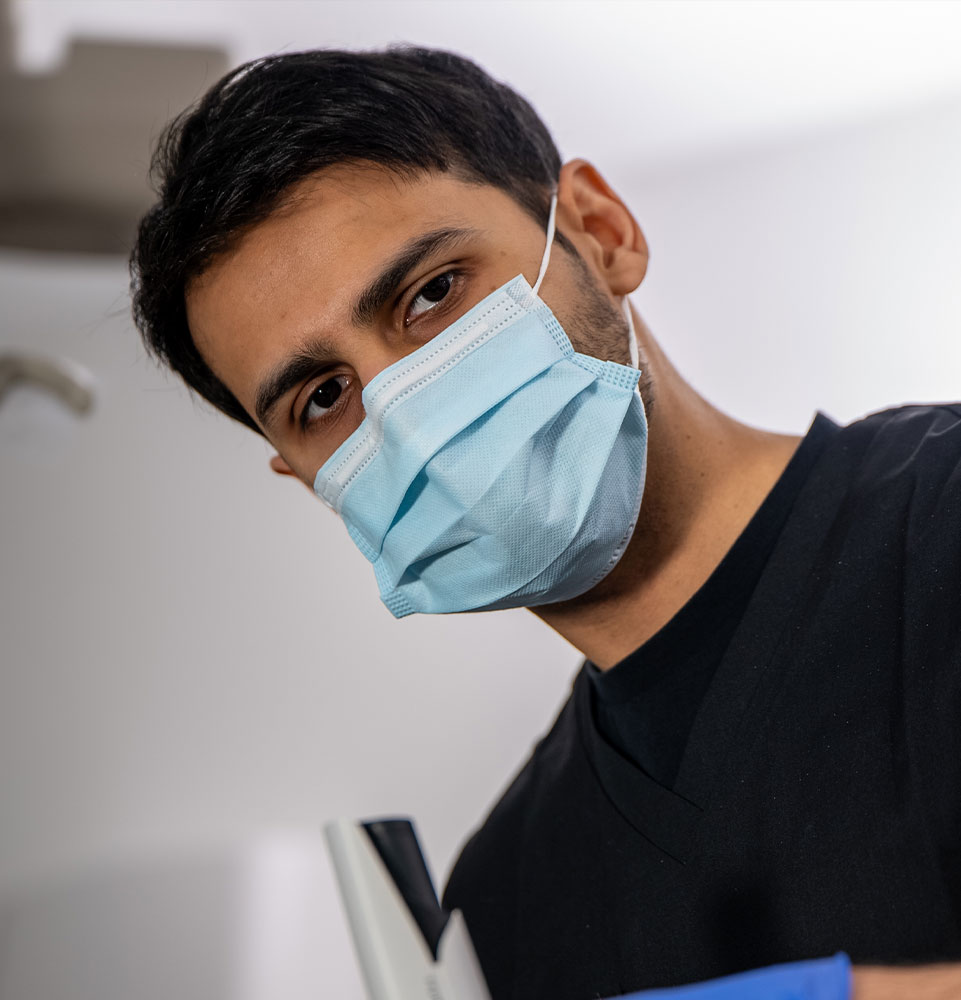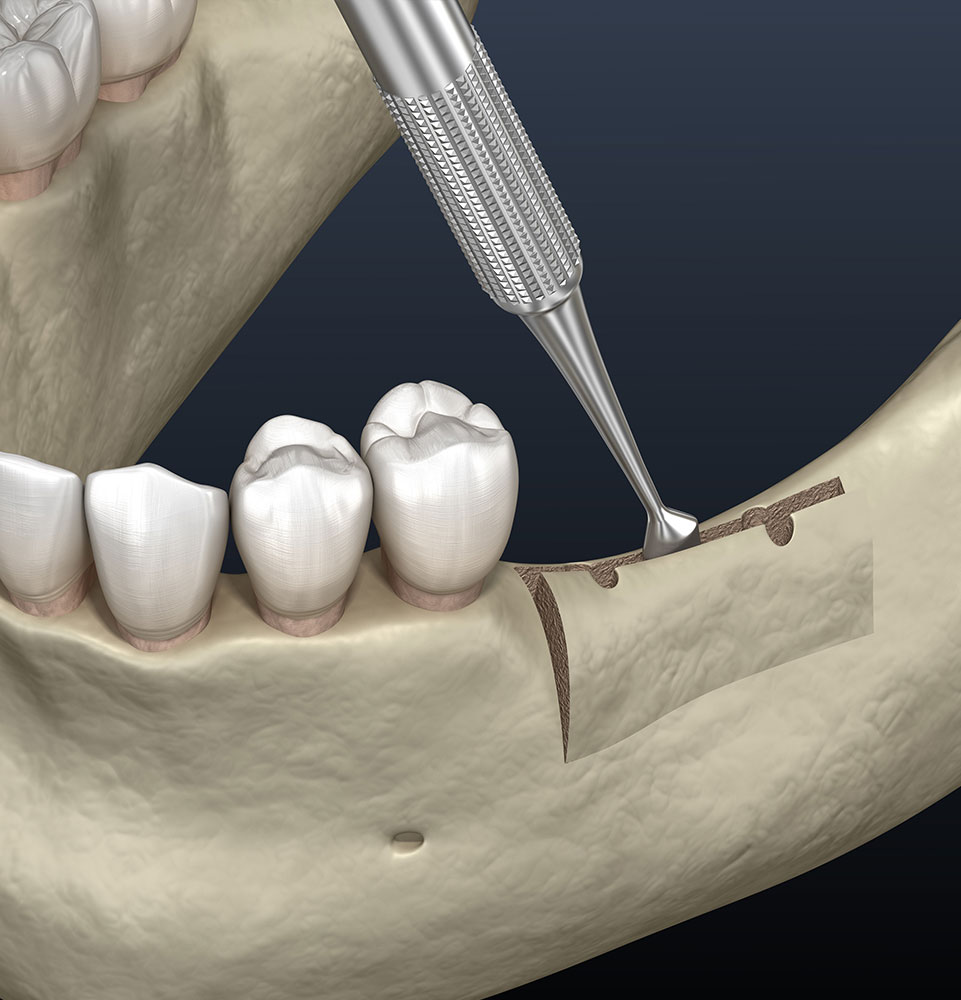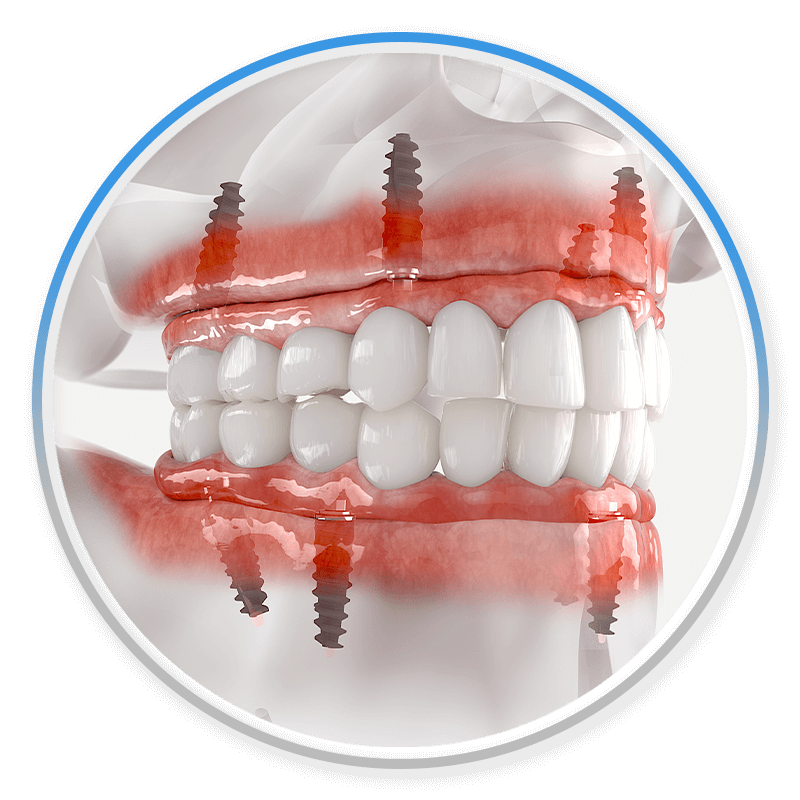

Preliminary Implant Procedures - Dublin, Ireland
Set a Strong Foundation for Implant Treatment with Oral Surgery
"Restoring My Confidence With A Smile Was The Best Decision Ever."
Schedule NowLeave Your Smile Struggles Behind with Dental Implants
If you struggle with severely decayed or missing teeth, the smile gaps can make it challenging to eat a well-balanced diet and pronounce certain words.
Tooth loss can also cause shifting of other teeth and a painful bite, increase the risk of gum disease, and even lead to temporomandibular joint dysfunction.
Furthermore, your smile is a means to express emotion and connect with other people, so compromised teeth can cause deflated self-confidence.
Bone loss is one of the inevitable consequences of tooth loss that can impede dental implant surgery, with numerous studies indicating the severity of bone loss directly impacts the success rate of dental implant procedures and postsurgical aesthetics.
Dental implants in Stillorgan, Dublin, are the only tooth replacement option replicating natural teeth’ root-to-crown function. As such, they provide unmatched stability, lasting durability, and a beautiful natural appearance that other solutions simply cannot offer.
When you visit Smile More Implant Centre for a free implant consultation, our team will determine if you are a suitable candidate for dental implants or if you need preliminary procedures to set the stage for a successful outcome.
Expert Dental Implant Treatment Often Begins with Preliminary Care
When you entrust your oral health to Smile More Implant Centre, Dr. Saad Ahsan and Dr. Jimmy Butt combine extensive experience with advanced technology to deliver minimally invasive, efficient, and predictable oral surgery in Stillorgan, Dublin.
Both our surgeons successfully complete over 200 cases of fixed full arch per year between themselves, so they have the experience, expertise and medical knowledge to perform safe, comfortable and precise oral surgery.
Dr. Ahsan and Dr. Butt are certified to provide IV sedation, should you need it to ease dental anxiety or if you are undergoing more complex bone grafting or tooth extraction.
Our preliminary procedures are designed to prepare your mouth for dental implants and increase the likelihood of an enduring, successful outcome.

Surgical Procedures to Prep Your Mouth for Dental Implants

Tooth Extractions
Our team always tries to save teeth, but extraction may be necessary to protect your overall dental health and prep your mouth for dental implants.
Whether due to decay, infection, or crowding, our team is adept at performing gentle tooth extractions in Stillorgan, Dublin, with minimal discomfort. We prioritise your comfort throughout the process, ensuring you feel at ease before, during, and after the procedure and experience a complication-free recovery.
If you are getting full mouth dental implants, we can extract the remaining teeth and place dental implants during the same surgical visit.
Bone Grafting
An estimated 50% of the alveolar bone width is lost within 12 months after tooth extraction, 30% of which occurs within the first 12 weeks. If your jawbone lacks the necessary quality or quantity of bone required for dental implants, grafting can strengthen and thicken the implant site(s).
This oral surgery is typically performed under local anaesthesia, but we may recommend sedation dentistry if extensive grafting is required.
A small incision is made in your gum tissue, gently separated from the bone, the bone grafting material is applied to the area with bone loss, and then your gum tissue is sutured back in place.
Initial recovery takes about a week, although complete healing typically requires a minimum of three months or even longer for large bone grafts.


Sinus Lifts
Your sinuses are air-filled spaces beside your nose and above your upper premolar and molar teeth. When you lose upper back molars, it is challenging to successfully place dental implants in this area due to insufficient bone and proximity to the sinuses.
First, we make a small incision in the premolar or molar region to expose your jawbone, and then the thin membrane that lines the sinus is elevated.
Bone grafting material is placed in the empty space; your gum tissue is closed with sutures. After four to 12 months of healing, the bone integrates (fuses) with your jaw, enabling dental implants to be securely placed in the bone-enhanced area.
Ridge Augmentation
Ridge augmentation is a type of oral surgery performed after a tooth extraction to help recreate the alveolar ridge of your jawbone that surrounds the roots of your teeth. Usually, the empty socket left after a tooth extraction will heal independently, filling in with bone and tissue.
But sometimes, when a tooth is removed, the bone surrounding the socket collapses and cannot heal on its own, resulting in a noticeable defect, cleft, or crease in the gums.
During ridge augmentation, the affected area is expanded. Then, bone graft material is placed to restore the original height and width of the socket, thereby setting a stable foundation for future dental implant surgery.

Are You A Candidate For Dental Implants?
It Felt Like No One Would Look At Me With Respect Because Of My Teeth
It Felt Like No One Would Look At Me With Respect Because Of My Teeth
Schedule An Appointment
I understand the information disclosed in this form may be subject to re-disclosure and may no longer be protected by HIPAA privacy regulations and the HITECH Act.

Find out if you're a
candidate for dental implants

Answer the Following Questions To Learn more about our pricing and financing options.


